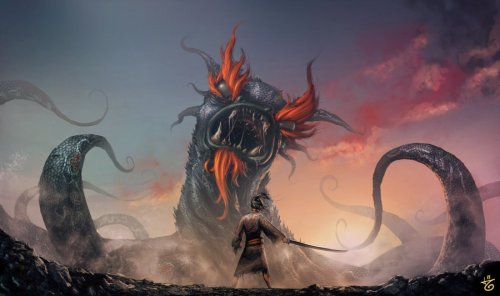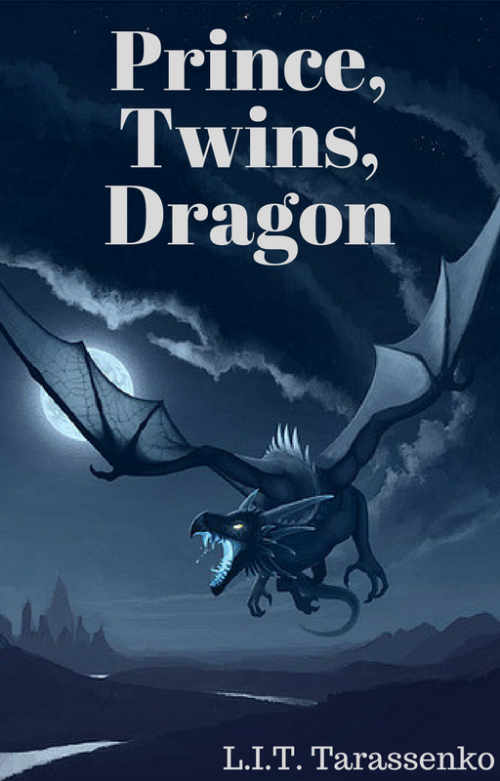WHY SAMURAI JACK IS THE BEST TV SHOW EVER MADE: THE TOP TEN BEST SAMURAI JACK EPISODES EVER (SEASONS 1-4)
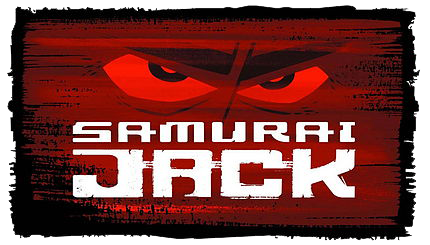
Samurai Jack was a cartoon created by Genndy Tartakovsky (Dexter’s Labortory, The Powerpuff Girls) which originally ran for four seasons in 2001- 2004.
It was then cancelled. However, last year in 2016 came the news that a fifth, final season was being made. You cannot imagine my excitement at this. At the time of writing, the final season is currently airing, with one more final ever episode about to drop this Saturday!
Since I’ve recently finished the third round of revisions on a Young Adult fantasy novel, this piece of writing and post is a bit more light-hearted. It’s about why Samurai Jack is my favourite TV show ever.
Okay, maybe it’s not the best TV show ever made, but I needed a clickbait title, and it’s definitely a contender for the best TV cartoon ever made.

What’s the big deal about Samurai Jack, then?
I was introduced to Samurai Jack as a teenager, I think by my brother and his fervent recommendations, whom as usual I at first ignored (sorry, Simon!). But when I eventually watched the show for myself later, I was spellbound.
I will struggle to communicate how compelling I find Samurai Jack is and how much its symbolism resonates with me.
When I was working as a church outreach worker in primary schools, I once designed a whole series of afterschool clubs based on watching Samurai Jack episodes and discussing possible Christian parallels with them with the kids afterwards. The children who came were en-rapt, and even the naughtiest kids from my most difficult school sat enchanted by the show and were then prepared to discuss possible spiritual connections with it afterwards! Including the non-Christians!
In a similar vein, I once put on a Samurai Jack episode screening night for my friends where we watched a bunch of episodes and then I explained and we discussed possible Biblical links that could be made to aspects of it. Because that’s the sort of weird person that I am… I’ve forced housemates, friends, family members all to endure my obsession with Samurai Jack, but they have all come around to seeing that it is brilliant. And now my wife has to put up with it too, but so has she!
So why exactly is Samurai Jack so good?
Here’s my explanation (similar to what I’ve done with the cult videogame ‘The Way’ in this blog post, which actually has lots of similarities to Samurai Jack too) and then a list of my favourite episodes.
- THE SYMBOLISM
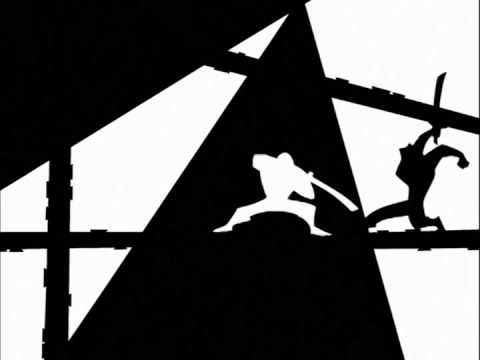
This is my main point. The basic premise of Samurai Jack is that an evil demonic force called Aku appears in feudal Japan. A samurai prince, of unknown name, is given a magic sword and takes on Aku. The samurai defeats Aku, but just at the crucial moment, Aku opens a portal in time and throws the samurai into the distant future.
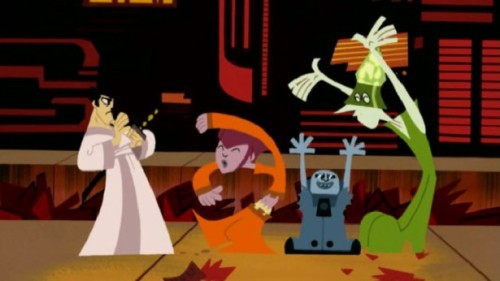
When the samurai arrives in the future, he discovers that Aku has taken over the entire world. Some bystanders give him the nickname ‘Jack’, which sticks, and he sets out on a quest somehow to return to the past and undo the future that Aku has created.
This basic premise is probably best explained in the recurrent prologue to every episode of seasons 1-4 in the voice of its lead antagonist (the voice actor for whom sadly passed away):
“Long ago in the distant past, I, Aku, the shape-shifting master of darkness, unleashed an unspeakable evil, but a foolish samurai warrior stepped forth to oppose me. Before the final blow was struck, I tore open a portal in time and flung him into the future, where my evil is law. Now the fool seeks to return to the past and undo the future that is Aku.”
Could you ask for a more Christological metanarrative? Well, probably, yes, but it is still a very strong one. From a Christian perspective, what we have here is essentially a Satan figure (the word ‘Aku’ just means ‘evil’ in Japanese), an everyman Christ-figure / monomythic hero (Jack) and an epic quest involving good vs. evil, self-sacrifice and holding to hope in the face of trial, opposition and despair in an alien land.
That’s a perfect grand guiding concept to tell a story rich in symbolism resonant of spiritual realities (whether you see them as Jungian archetypal aspects of the collective unconscious or, as I do and I believe you should, metaphysical truths accurately described by the Christian worldview).
But it’s not just in terms of its overall narrative that Samurai Jack is rich in symbolism. Also within this overaching story, the smaller, individual short stories it tells are full of more specific symbolism and powerful themes, as I will endeavour to show when I discuss some individual episodes below.
- THE ATMOSPHERE

A trademark motif of focusing in on a bird or another wild creature for a long part of the shot, until it eventually flies or scampers away. Unique sound effects used to portray psychological events. An emphasis on the seasons and weather. Long periods of silence. Still landscapes. Did I mention we are talking about a cartoon here? Samurai Jack has all of these things. It builds tension irresistibly throughout almost every episode, creating a highly immersive atmosphere.
- THE ARTWORK
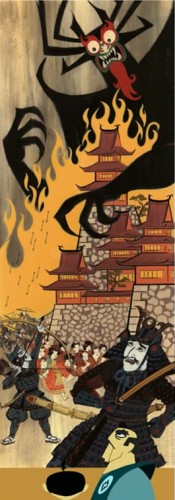
The drawing and animation in Samurai Jack, although it was still finding its feet in its first season, is beautiful. It employs hand-drawn backgrounds, Japanese-influenced paintbrush stills, and wide shots of nature, and often switches up its art style in a completely non-jarring way between or even within episodes, in keeping with the context and themes. It is a work of art. This is not an exaggeration.
- THE ACTION

Samurai Jack has amazing, intricately choreographed action sequences. Sometimes for an entire episode there is no or very little dialogue! And we still find ourselves on the edge of our seats for 20 minutes. When it comes to action sequences, in a sense you can do more in a cartoon than you can in live action, because you are only limited by what you can draw and make look realistic on the page. Samurai Jack demonstrates this many times over.
*
Having gushed enough about it now, here is a list of my favourite Samurai Jack episodes and a brief explanation of some of what I find to be their theological correspondences, as examples. This is my own list and is purely subjective. There are other best episode lists out there, but I have picked my own favourites (although lots of these overlap with what are on the other best episode lists too). I have stuck to Seasons 1-4 because I am most familiar with those, because not everyone will have seen Season 5 yet, and because Season 5 is more of a single continuous story rather than a series of self-contained short stories.
TOP TEN BEST SAMURAI JACK EPISODES (SEASON 1-4)
10. EPISODES I-III: THE BEGINNING

Okay, three episodes for the price of one here, but they all fit together as a continuous story as the ‘Premiere Movie’ which introduces the concept of Samurai Jack, so they are essential viewing for any Jack fan or anyone looking into the series. My particular highlight is the extended montage where Jack, having been sent away to do so by his mother, travels the world as he grows up, training and learning in all the different countries he passes through with a network of different rulers his parents are a part of. This offers a lovely showcase of many of the different historical cultures of the world: India, Arabia, Africa, China, England, Russia, Scandinavia, and more. The picture above shows Jack being handed over from his Middle Eastern mentor to his African caretaker. It was this eclectic traveling sequence, celebrating the different cultures of the world, that won over a number of my skeptical housemates to Samurai Jack when I showed it to them!
9. EPISODE VII: JACK AND THE THREE BLIND ARCHERS

This is the first Samurai Jack episode that is pure poetry: Jack has to fight a group of three blind archers who are incredibly accurate and dangerous because of their magically heightened superhuman hearing. They can also fire off hundreds of arrows a minute as evinced by the opening sequence in which we see them absolutely trash an independent attacking army. In order to overcome them, Jack has to blindfold himself and learn to pay attention to his other senses, Daredevil-style, giving an opportunity for a very impressionistic animation set-piece: Jack focuses in on the sounds and feelings around him until he can concentrate on the sound of just one single shattering snowflake. Then, the climax of this episode happens in almost complete silence! It showcases some important lessons about mindfulness, being present in the moment, and paying attention to our senses. I could talk about how Christianity is compatible with that, but that’s another post (there are books out there — google is your friend).
8. EPISODE XLVIII: JACK VS. AKU

A late episode next, and one where the title encapsulates the whole story of Samurai Jack. However this episode is a bit different, as the demonic Aku, for one fight only, promises not to use any of his shape-shifting powers or tricks, and for all intents and purposes appears to limit himself to the physiology of a human. The results are predictable (since Aku is intrinsically deceptive) but fascinating. As well as being ominous, arresting and slightly disturbing, this episode is also very funny. It contains many weird little set-pieces, like Aku trying to order pizza on the phone at the start of the episode, and plot twists centered around whether Aku is or isn’t using his powers in the fight. It is an example of Samurai Jack self-parodying itself in a highly amusing way.
7. EPISODE XXVI: JACK’S SHOES

This is another comic relief episode. In it, Jack’s wooden Japanese shoes are run over and broken by a group of robot bikers and he has to fight them while trying to find some new footwear. The whole episode is worth it just for the appearance of the character whom I will call Hilarious Referee Guy, the proprietor of ‘Foot-Chalet’, who is utterly sincere, endearing, and ridiculous. The bad guys smash up his shop, and he runs out the door, blowing a referee whistle at top volume until he’s blue in the face, and then yells “Foul! Illegal! Stop!” or similar. I crack up every time he comes on.
6. EPISODE XLIV: THE PRINCESS AND THE BOUNTY HUNTERS

The most gripping Samurai Jack episode, in my opinion. In this one, a group of bounty hunters from different cultures around the world (mirroring the first episode), led by the eponymous princess, devise an elaborate cooperative plot to kill Samurai Jack, each telling their own version of the plan, with a corresponding change in the style of the artwork for each retelling. We’ve got some twin Siamese cats, their plan shown through subtle calligraphic brushstrokes. An aboriginal’s plan shown in the style of cave paintings. An American gentleman’s shown like a grainy old Western. A brutish slavic character’s shown through crude crayon drawings. Amazing. The denoument is the most incredibly choreographed action sequence I’ve seen in any media. I won’t spoil anything, but the bounty hunters all put their plans together into one enormous super-plan, and then lay in wait for the samurai in the snow. There is a looong wait. I mean, Tartakovsky has a good few minutes of silence in there — very bold for a cartoon. And when Jack eventually shows up…well, let’s just say it’s all over much more quickly than you might think. Coolness encapsulated. And it’s all the more cool because you have seen how elaborate the bounty hunters’ plan is beforehand.
5. EPISODE VIII: JACK VS. MAD JACK

OK, this is where in my particular list of episodes the symbolism begins to get really rich. There is symbolism in the other episodes I have mentioned so far, but it is less pronounced and this is where we really start to get into it. In this episode, Jack’s anger, hatred and selfishness become so out of control that they become externalised and personified as ablack-and-red version of himself that materialses, ‘Mad-Jack’, whom he has to fight. Mad Jack is Samurai Jack’s Id, or his repressions, or his sinful fleshy nature, whatever you want to call it. So what we have in this episode is a dramatisation of Romans 7 versus Romans 8: of the battle between the selfish, purely fleshy nature and the Spirit-led, higher self in a human being. In the form of two samurai having a sword-fight. Awesome. This is basically the phenomenological experience of my psyche expressed using the symbological lexicon of my nerdy teenage self. Of course, the resolution is a bit more Eastern than Christian, but the imagery was powerful to my teenage self and it is powerful to me now.
4. EPISODE XX: JACK AND THE MONKS

I love this episode so much I only realised later that it was almost certainly a subconscious influence on the first epic fantasy novel I wrote, How Zantheus Fell into the Sky, which starts with a knight trying to climb an insurmountable mountain (and also involves time-travel, of sorts). In this episode, Jack tries to climb an insurmountable mountain, as inspired by three monks whom he meets who are also trying do the same thing, because they believe “truth” is to be found at the top of it. On the climb, Jack faces many horrendous challenges and reaches one of his lowest points, being crushed and defeated by one of the monsters he has to fight on the mountain and ending up lying in a battered and bloody heap. However, still he perseveres. The ending is also very allegorical and evocative, even in Christian terms (though I had a different ending in my novel!): Jack reaches the top of the mountain, but doesn’t necessarily find the ‘truth’ he is looking for. Instead, he sees another, even bigger, mountain, far off in the distance, perhaps symbolising his ongoing heroic quest. You can just hear the barely grammatically correct lyric by 90s UK tween pop band S Club 7 ringing in your ears: “Climb every mountain higher!”
3. EPISODE XIV: JACK LEARNS TO JUMP GOOD

This episode, the first of season 2, is a fan favourite. When I put in on in front of my naughty after-school club children they were instantly won round to Samurai Jack. Just look at those cute little monkeys. What might be less commonly observed is that this episode is also a perfect visual illustration of Irenaean-type responses to the problem of evil, James 1:12, and so perhaps also Romans 8:28. In other words, of theological material that has to do with the idea that the difficult things in life, while they may be really difficult and horrible, can also sometimes grow us and make us stronger. In the episode, Jack meets a group of monkeys who teach him to jump to miraculous heights. To do this, they train him by strapping a series of rocks and boulders on to his arms, legs and feet (this may be a nod to events in the original Dragonball manga).

At first Jack can do nothing and is completely weighed down by the rocks Then, over a long period of time, he slowly starts to be able to move through the pain, until eventually one day he is able to walk, then run, then jump normally with the rocks strapped to him. When one day they untie the rocks from him, Jack finds to his delight that he is able to jump miraculously high–almost to fly. He elates, and dances around, soaring incredibly far up using his newfound near-flight power. And there we have it: a perfect visual metaphor for the idea that sometimes God can use the painful and difficult things that happen to us to make us stronger and lead us to a better outcome overall.
2. EPISODE XL: JACK VS. THE NINJA

The most stylish and aesthetically impressive Samurai Jack episode. In this one Jack has to fight a robotic shinobi, a ninja or warrior of the night, which can hide itself in shadows and darkness. In the climactic sequence of this episode, the art changes to pure black on white (with the odd hint of red) as Jack uses an opposite technique of hiding himself in the light. Really it has to be watched for justice to be done to it. The religious and mythological symbolism of light vs dark is too obvious and primal to spell out here at length.
=2. BONUS ENTRY: EPISODE XLII: SAMURAI VS. SAMURAI

OK, I accidentally miscounted how many favourite episodes I had listed, so this one can be joint second, with the top one following. In this episode Jack is goaded into a duel by an arrogant, bullying pretender “samurai” who is imitating the institution as part of his own aesthetic choices but has completely missed the point of it. In the process, reluctant to fight properly, Jack teaches the imitator “samurai” about humility, gentleness and discipline. This episode as such contains the immortal line, from Jack to the wannabe Samurai when he is schooling him, “To defeat another you must first defeat yourself.” Compare “whoever loses his life will save it” (Mark 8:35) and “I have died and it is no longer I who live, but Christ in me” (Galatians 2:20).

As a result this episode highlights some of the many connections between the samurai Bushido code and New Testament Christianity. I became so interested in these points of connection as a teenager (initially because of Samurai Jack) that I pursued them further and bought books to research them further, including the samurai manuals “Hagakure” (the Book of Fallen Leaves) and “The Book of Five Rings”. I really think there are strong parallels, and occasionally I have seen others make them as well. Maybe this will get its own blog post or article someday. Just a taster: “Samurai” means “servant”, and fedual Japenese samurai lived lives of total self-sacrifice and were prepared to die for their masters. The key difference is that Christians also believe in resurrection, and seem to advocate a bit more joy in the process of self-sacrifice and surrender! But there are parallels nonetheless.
1. EPISODE XLIII: THE AKU INFECTION

And so to my favourite and in my opinion the best ever episode of Samurai Jack. This one returns to the higher self vs. lower self theme of ‘Jack vs. Mad Jack’ (discussed above) but develops it even further. This time, while Jack is fighting with Aku, the demon is sick and ends up accidentally coughing a bit of himself up (gross I know), which Jack inhales. As a result Jack later becomes slowly infected by Aku, until the demon oppresses him, possesses him and completely takes him over, and he has to fight an interior battle to be rid of the infection. This interior battle is portrayed very impressionistically as a visual battle between the dark and light inside Jack’s mind, interspersed with cuts to Jack in the external world talking to himself while he wrestles internally. So here we have Romans 7 vs Romans 8 played out even more vividily, poignantly and arrestingly. It’s sin + evil vs. spirit + goodness, in the heart, mind and body of one person.

I once had a dream very similar to parts of this episode while I was on a mission trip in Africa, and when I was undergraduate student I once showed it to my best friend in order to try to describe how I felt about a certain issue I was dealing with. And this time, the imagery of the resolution and denouement could actually itself be interpreted in a directly allegorical Christian way. I love it!
*
So there we have it: Why Samurai Jack is the best TV show (cartoon) ever made and my top ten (eleven) favourite episodes!
Now go watch it! Buy it when it comes out on DVD! Use it as a starting point to have evangelistic conversations with your friends! 😉
